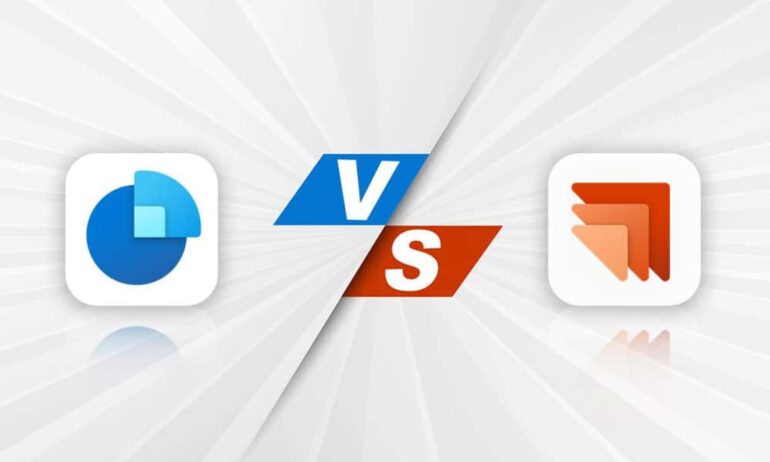In the fast-paced world of modern sales, the tools you equip your team can determine how well you close deals, nurture leads, and forecast future performance. Microsoft offers two powerful solutions to support this process: Microsoft Dynamics 365 for Sales Professional and Dynamics 365 Customer Engagement (Sales Enterprise). But which one is the better fit for your business?
Both editions serve a similar purpose—empowering your sales team with digital tools that streamline customer interactions, improve data visibility, and boost conversions. However, each solution’s capabilities, flexibility, and scalability differ significantly.
In this blog, we break down the differences between these two Dynamics 365 offerings to help you make an informed decision for your sales organization.
Understanding the basics: Sales professional vs. Sales enterprise
Microsoft created Microsoft Dynamics 365 for Sales Professional as a streamlined, cost-effective CRM solution for small to mid-sized businesses looking to improve their sales operations without overcomplicating workflows.
In contrast, Sales Enterprise, which falls under the broader Dynamics 365 Customer Engagement umbrella, is designed for larger or more complex organizations that require greater flexibility, advanced automation, and deeper customization.
Let’s examine how these two offerings compare in the most critical areas.
Core features comparison
1. Sales Force Automation
Both solutions provide sales force automation capabilities such as lead and opportunity management, contact tracking, and account management. However, Sales Enterprise includes territory management, forecasting, and advanced pipeline customization options.
While Microsoft Dynamics 365 for Sales Professional includes basic workflows and business process flows, the Enterprise edition supports advanced process modeling and customization for complex sales cycles.
2. Customization and extensibility
Customization is one of the key differentiators between the two. Sales Professional offers limited customization options, mostly for modifying existing forms, views, and dashboards.
Sales Enterprise, however, supports:
- Custom entities and complex business rules
- Full access to Power Apps and Power Automate flows
- Integration with AI Builder for predictive scoring
If your sales strategy demands highly tailored solutions, Dynamics 365 Customer Engagement (Sales Enterprise) is more capable.
3. Integration with other Microsoft products
Sales Professional and Enterprise integrate with Microsoft 365 (formerly Office 365), including Outlook, Teams, and Excel. However, Enterprise customers benefit from more advanced integrations, such as:
- Embedded intelligence and AI-driven insights
- Integration with Customer Voice and LinkedIn Sales Navigator
- Extended Power BI capabilities
These advanced integrations help larger sales teams uncover deeper insights and personalize engagement more effectively.
4. Automation and AI capabilities
Automation can dramatically reduce manual effort and improve sales forecasting and lead scoring accuracy. Sales Professional includes simple rule-based workflows and limited automation capabilities.
Sales Enterprise, on the other hand, offers AI-powered features such as:
- Predictive lead and opportunity scoring
- Relationship analytics
- Sales forecasting with trend analysis
If you want to build a high-performing, data-driven sales organization, the Enterprise version under Dynamics 365 Customer Engagement is better equipped.
5. Licensing and pricing
Pricing is a major consideration when choosing between the two editions. Microsoft Dynamics 365 for Sales Professional offers a lower entry price, making it attractive for small and growing businesses.
Sales Enterprise comes at a higher price point, but its broader range of features and scalability offset that cost.
It’s essential to consider your business’s long-term needs. Sales Enterprise may offer a better ROI over time if you anticipate growing quickly or need extensive automation.
6. Scalability and user limits
Sales Professional has limitations on the number of custom entities, workflows, and apps you can deploy. It’s designed to support small teams with relatively straightforward needs.
With its unlimited potential for customization and integration, Sales Enterprise is built for larger organizations or those with multiple departments or business units using the platform.
If you’re building an enterprise sales operation, the capabilities of Dynamics 365 Customer Engagement will be essential.
When to choose each solution
Choose Microsoft Dynamics 365 for Sales Professional if:
- You’re a small or mid-sized business
- Your sales processes are straightforward
- You have a limited budget but need CRM basics
- You’re new to CRM and want a low-friction entry point
Choose Sales Enterprise under Dynamics 365 Customer Engagement if:
- You’re a large organization or scaling rapidly
- You need advanced automation, AI, or forecasting tools
- You require deep customization and integrations
- Your sales strategy includes multiple territories or teams
Migrating from professional to enterprise
One of the advantages of Microsoft’s CRM ecosystem is the ability to start small and scale over time. Businesses that begin with the Microsoft Dynamics 365 for Sales Professional license can migrate to Sales Enterprise as their requirements evolve.
A managed upgrade process ensures data integrity and continuity, and a Microsoft partner can assist with assessing readiness, mapping new workflows, and deploying enhancements.
This flexibility helps businesses stay agile without having to rip and replace their CRM as they grow.
Final thoughts
Whether you choose Microsoft Dynamics 365 for Sales Professional or the full Dynamics 365 Customer Engagement (Sales Enterprise) offering, Microsoft provides a solid foundation for managing sales pipelines, nurturing customer relationships, and improving win rates.
The right choice depends on your team size, sales process complexity, and future growth plans. If simplicity, affordability, and quick deployment are your top priorities, Sales Professional offers excellent value. If you aim for a deeply integrated, data-powered sales operation, Sales Enterprise delivers the tools and flexibility to scale.
Either way, Microsoft ensures you have a pathway to growth, adaptation, and success in today’s competitive sales landscape.
ALSO READ: The Rise of Animated Text in Short-Form Content: What Creators Need to Know






